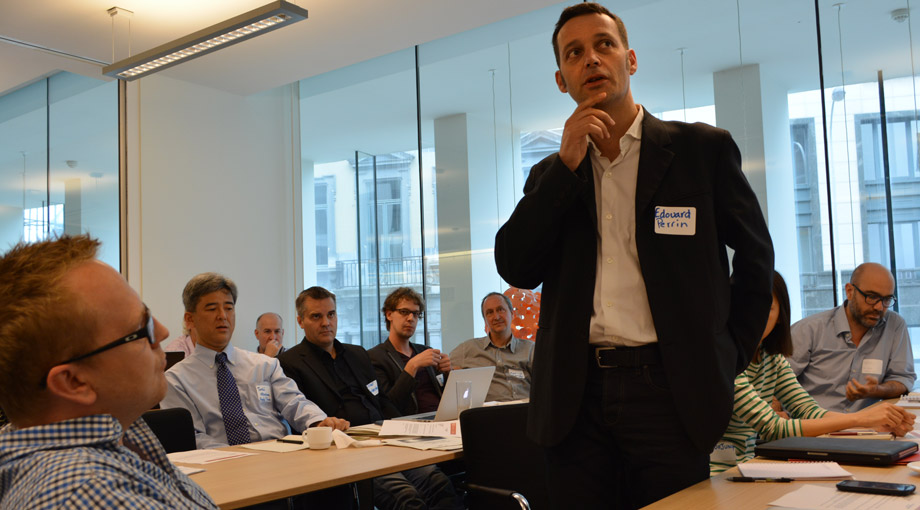When the International Consortium of Investigative Journalists began its Luxembourg Leaks investigation, it faced a list of challenges.
The documents at the heart of the investigation were incredibly complex. Reporting required a great deal of financial knowledge and local expertise.
What’s more, some of the files had already been reported on by French journalist Edouard Perrin and by the BBC, and ICIJ’s editors worried that ICIJ’s members and media partners might see the leaked tax documents as old news.
But we knew that the bulk of the nearly 28,000 pages of secret Luxembourg tax deals had never before been examined by journalists. The documents revealed important, previously unreported details about how the international accounting firm PricewaterhouseCoopers had helped Pepsi, IKEA, Abbott and 340 other firms obtain secret deals from Luxembourg that allowed many of them to drastically cut their tax bills.

Many ICIJ members and media partners quickly saw the value in the trove of documents and signed on to the project. In early June, 40 ICIJ members from Japan to the U.S. gathered in Brussels to plan the work and share notes.
For ICIJ, the road ahead was clear: local eyes + local expertise from as many countries as possible to find and report the best possible global story.
The excitement of the Brussels gathering was followed by months of tedious, quiet investigative work. ICIJ created a secure forum to smooth communication and cooperation among reporters from 26 different countries. The forum, called Enterprise, quickly became the go-to place for reporting advice, Luxembourg-related news and support among team members.

The forum was the closest we have experienced to a true global “virtual newsroom” where reporters from around the world help one another because they believe collaboration leads to better stories and larger impact. Journalists shared interview transcripts, photos and even confidential material, knowing that they could trust their colleagues within the network. By October the group had grown to more than 80 journalists working for dozens of different and, sometimes, competing media organizations.
 One of the biggest challenges we faced was to decipher complicated documents filled with terms such as convertible preferred equity certificates and profit participating loans. We worked hard to put them in proper context and translate the arcane accounting lingo into a narrative that helped readers understand and care about what was happening in Luxembourg. Several tax experts donated their time to help reporters. Some media organizations hired experts to help review the files.
One of the biggest challenges we faced was to decipher complicated documents filled with terms such as convertible preferred equity certificates and profit participating loans. We worked hard to put them in proper context and translate the arcane accounting lingo into a narrative that helped readers understand and care about what was happening in Luxembourg. Several tax experts donated their time to help reporters. Some media organizations hired experts to help review the files.
To provide access to the documents, ICIJ’s data unit built a secure online platform where reporters could search and download the files. Each of the more than 500 individual tax rulings had been manually reviewed by ICIJ’s researchers and tagged by country, company and other useful categories. This is all part of the behind-the-scenes, unglamorous but essential work that ICIJ reporters and researchers do to foster collaboration among journalists working in multiple languages and multiple time zones.
Along with the leaked documents, reporters reviewed companies’ financial statements, lawsuits, regulatory filings and other public documents. They traveled far and wide to follow leads and knock on doors in Luxembourg. Officials at PricewaterhouseCoopers declined reporters’ requests for interviews about the tax deals. PwC issued a statement saying ICIJ’s work was based on “stolen” documents and that the company rejected “any suggestion that there is anything improper about the firm’s work.”
Secrecy was the norm in Luxembourg, where managers for global companies’ subsidiaries were often instructed to not talk to reporters. Even outside Luxembourg, reporters sometimes ran into information roadblocks. ICIJ’s partners at the Canadian Broadcasting Corporation sent a public records request to Canadian officials asking for a copy of the Luxembourg tax ruling for a company controlled by the Canadian government. They received the tax ruling – with almost every line of the document blacked out.

As the project team was doing interviews and sifting through the documents, things were heating up in Luxembourg. The European Commission announced probes into at least two companies, Amazon and Fiat, which had obtained tax rulings in Luxembourg. It also opened infringement procedures against the tiny Central European country, claiming that Luxembourg authorities had refused to provide all of the documents that the commission had requested.
Along with dozens of stories by our media partners, ICIJ for the first time is making nearly 550 secret Luxembourg tax rulings public and searchable. These tax deals are signed, stamped and approved by Luxembourg officials. ICIJ is publishing them in the public interest.
While many stories based on the documents will be published in the next days and weeks, there are still many more in the documents that have not yet been found and told. We welcome tips from readers and encourage other media organizations to join our reporting in the months ahead.
Like ICIJ investigations? Find out how you can support our work
